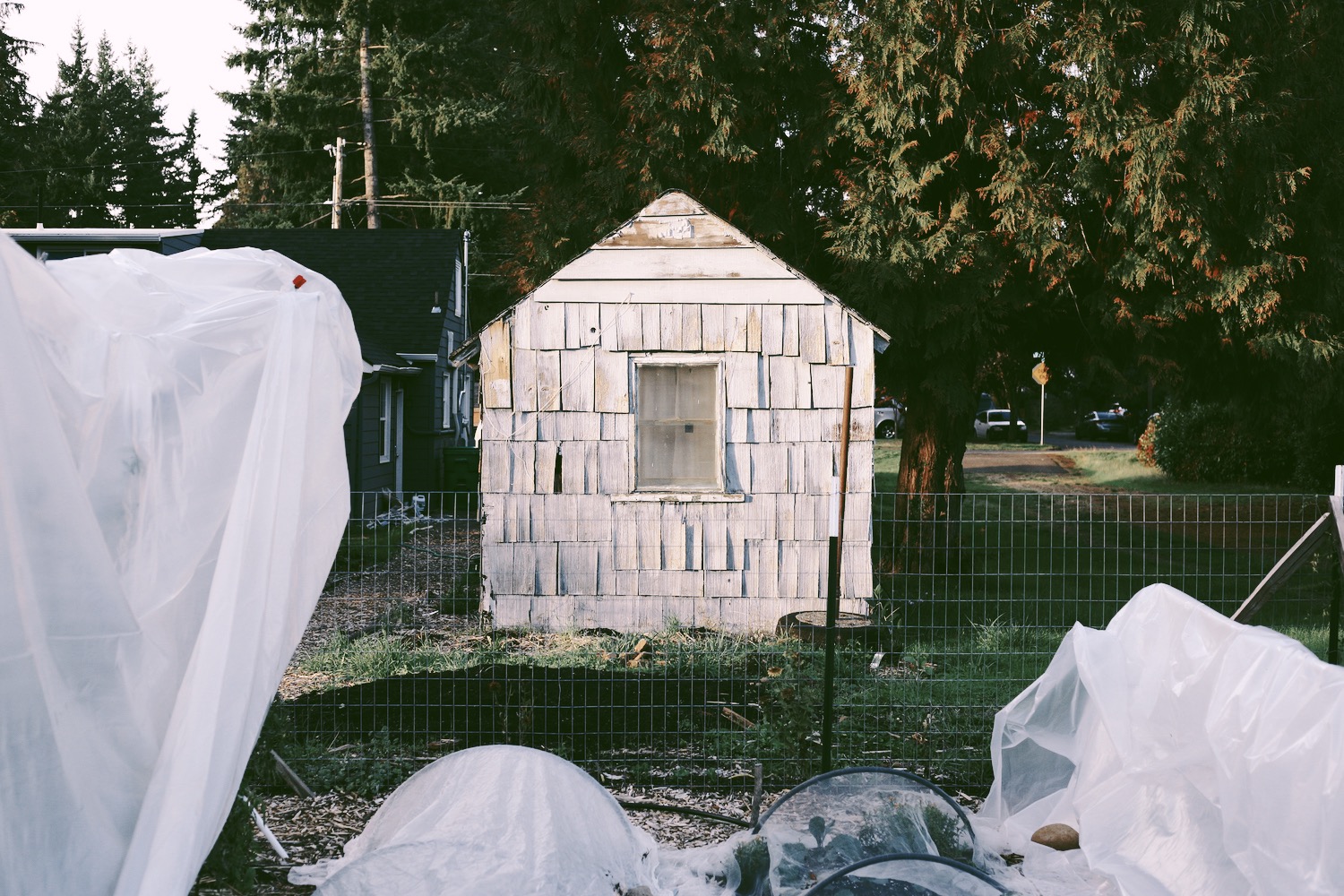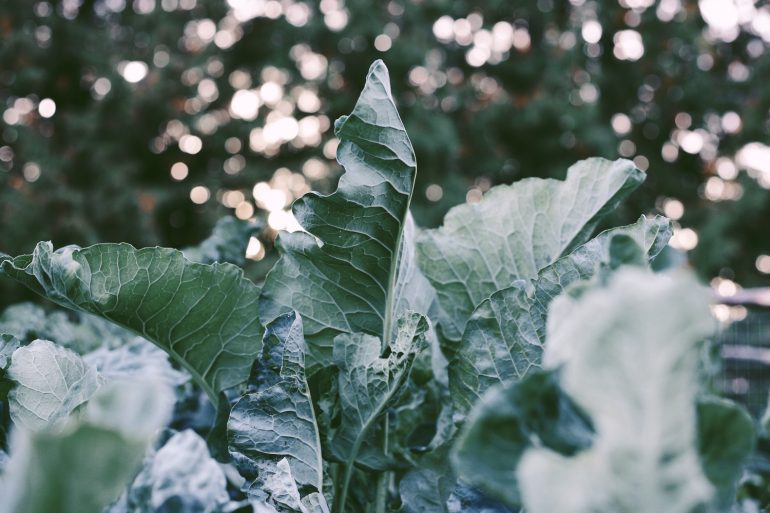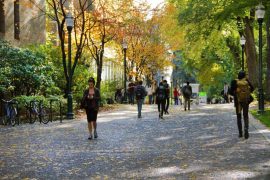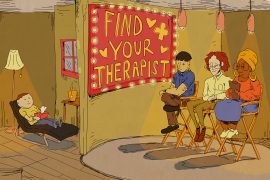Every now and then, a 13-year-old boy knocks on the door of the stranger’s house that stands between Gilbert Park Elementary and Alice Ott Middle schools, just to the west of Portland’s Powell Butte Park.
“It started when it was really hot out, and he just keeps coming back,” Amy Conway tells me. She and her husband Brandon have lived in the home with their children Alvah, 15, and Heywood, 13, since they bought it in December 2020.
“He’ll play basketball at the school, and not remember to bring a water bottle,” Brandon adds with a laugh.
Anyone familiar with the Conways would be unsurprised that they welcome this interaction. Though they wittily described themselves to me as “not always social, friendly, or regular neighbor people,” the intention behind their half-acre plot nestled in a diverse neighborhood is rooted in this kind of community care.
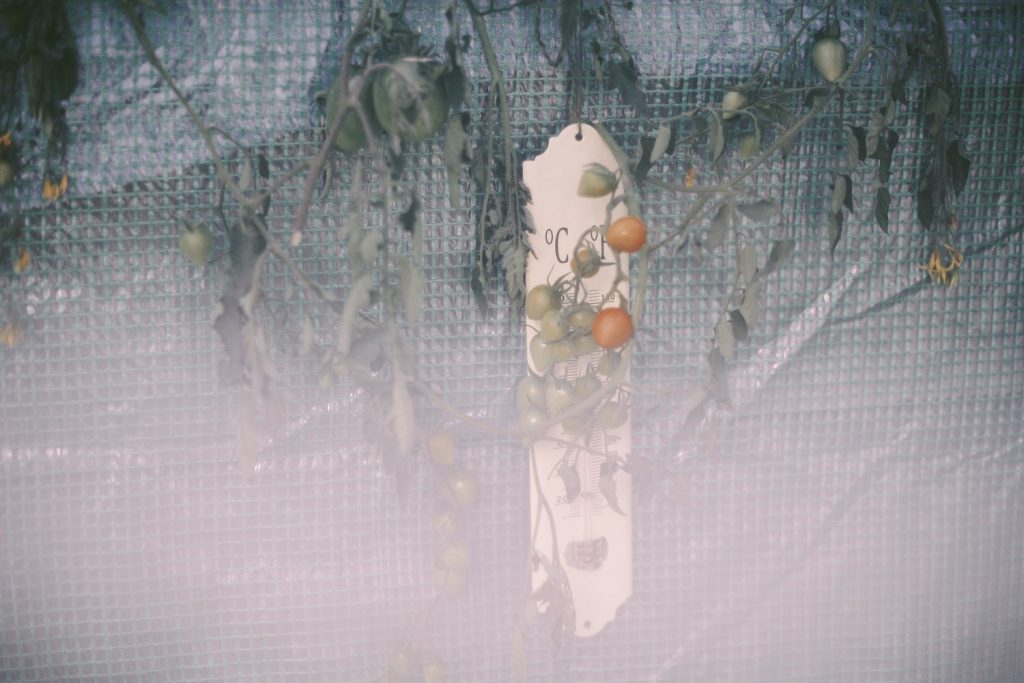
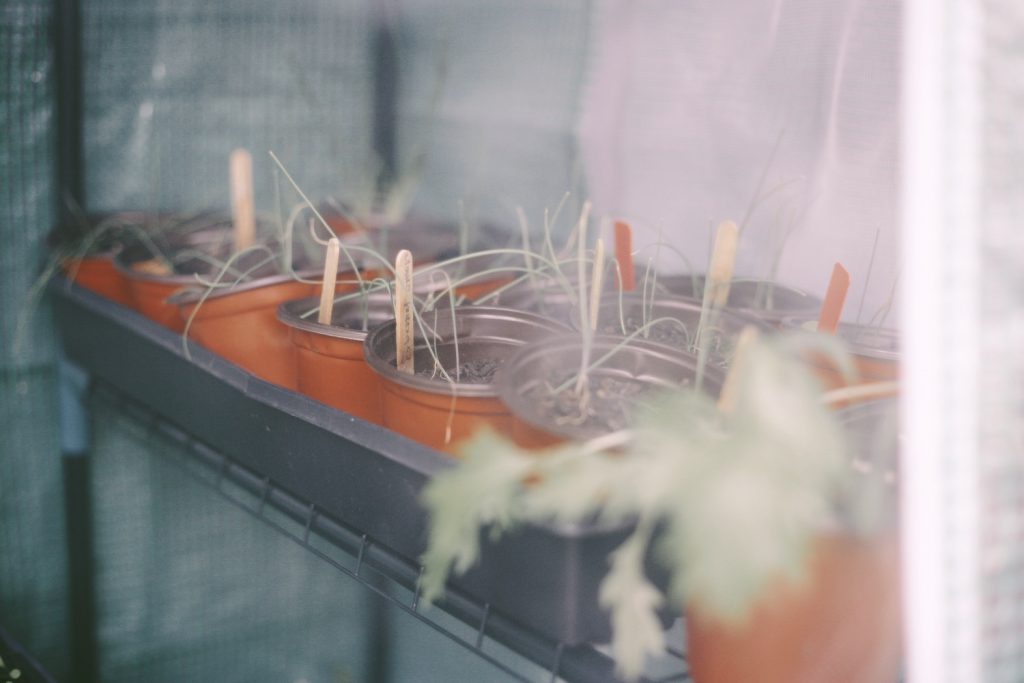
When they moved from the city to the outskirts of town, the Conway’s weren’t trying to start a farm as a source of income. Rather, they wanted to reshape their daily lives; to reprioritize and materially change the way they participated in the world. They envisioned a place that could operate as a garden or a performance space, a classroom or some still-unimagined thing. Though nothing is overtly political here, in many ways the small farm demonstrates how the direct action typical of mutual aid groups can exist in any neighborhood willing to think outside of commonplace, narrowly defined notions of what a space should be.
“That [is] really inspiring,” Brandon says. “That is something we are trying to do—to take care of people in some way or another.”
Each summer, on the sidewalk at the edge of the front yard where pumpkins and watermelons grow next to pear, apple, and cherry trees, the Conways occasionally set up a fresh fruit and veggie stand adorned with a sign that read Pay What You Will and Take What You Need. They accept cash payment, and they give away a healthy amount, but a key feature is that friends and neighbors can trade bags of coffee, wine, or pears from their own yard in exchange for fresh organics. One neighbor traded coloring books for the kids; another acquired zucchini and reciprocated a baked loaf of zucchini bread. An artisanal fabric banner stitched with the name of the farm, a mixtape, plumbing work, and a pile of dirt have all been traded straight across.
“You see the social value of things instead of the monetary value,” Brandon tells me. “I guess in that way, it is kind of political—to not have everything be caught up in a capitalist, transactional thing.”
The main backyard garden is a fenced-in, 36-by-48-foot area lined with 18 no-dig soil beds. Its gate swings at the end of a wood chip path, guided by rows of strawberries and cherry tomatoes, past a rickety shed barely large enough to shelter a few garden tools, junk, and a playable drum kit. On Lloyd the Scarecrow’s edge of the fence, two Blue Runner and four Khaki-Campbell ducks—Kathy, Babs, Grandpa the 3rd, Duckter Who, Addie Quacksalot and Mabel Syrup (“because, puns,” Alvah tells me)—wait for their afternoon snack and a shared bowl of fresh hose water. As ducklings, they were brought to the farm to eat pests, but their manure plays an increasingly important role in the making of compost, which directly contributes to the land’s permaculture. Inside the fence, tomatoes, brassicas, beets, potatoes, arugula, peas, squash, onions, and garlic grow beside other companion vegetables and flowers that attract bees, birds, and other helpful pollinators.
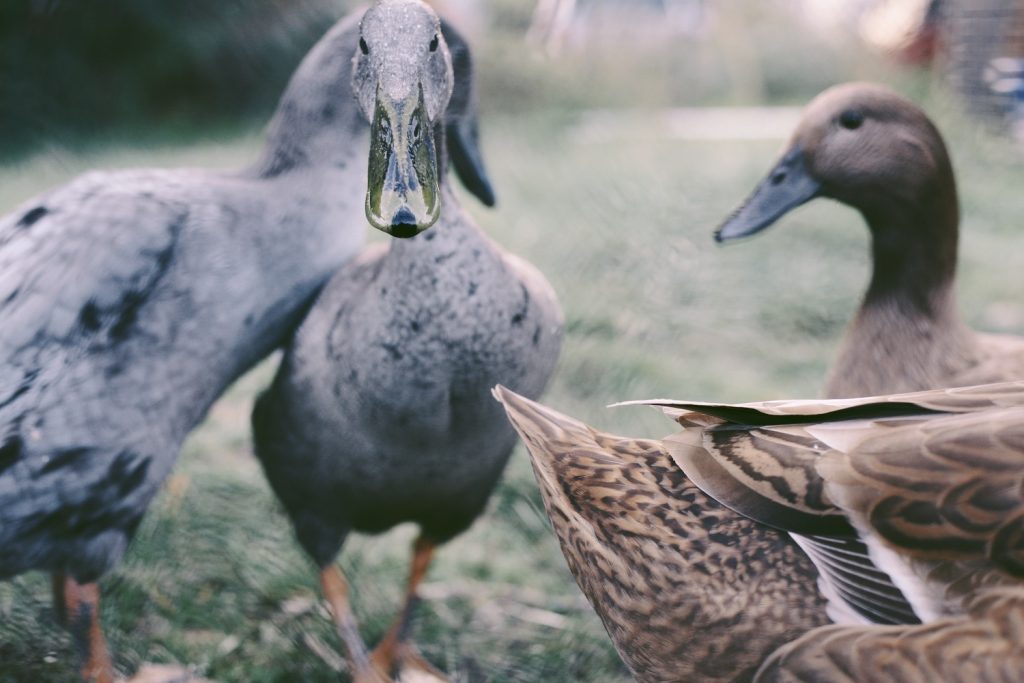
In 2019, Amy sustained a traumatic brain injury from a car wreck, which temporarily slowed her cognitive function. While she was suddenly unable to do tasks like use a computer or cut carrots, she often found herself slowly working in the garden, disappearing into the dirt.
“To sow a row of seeds is so slow, quiet, precise and concentrated—” she says. “Really hard tasks when you’re supposed to focus and move slowly. It’s meditative. The patience of it has been good to practice.”
Transforming the land demands an abundance of patience. Plants and trees will take months and years from seedlings and saplings to fully-grown florae. This is the convergence of Amy’s meditation, recovery, and art practice, all in the interest of something larger than the half acre with which it exists.
“We figured out how to be global,” she says. “We relished in it. But it’s ruining our planet too. How do we marry this ability to be able to reach across the world easily, with the fact that we still need to live like everything around us is affected by what we do?”
In his 1972 essay “Think Little,” Kentucky farmer and activist-writer Wendell Berry posited that “the movement to preserve the environment will be seen to be, as I think it has to be, not a digression from the civil rights and peace movements, but the logical culmination of those movements.” The point he wanted to drive home, some 50 years ago, is that in order to correct course away from the enduring abuse of the environment and each other, a wholesale reimagining of our way of life is necessary. To think little, and improve a small piece of the earth.
The Conway’s envision the future of their farm as even more intentionally open. The front yard garden has been planted with the hopes of one day welcoming passersby to “wander in and pick a peach, strawberries or herbs.” The seeds of this openness have been planted—seeds of thinking little, of an artistic vision of how a space may morph in a given moment to cultivate mutually enjoyed meaning and peace in a neighborhood at the edge of the county line. For a handful of friends, a diverse group of neighbors, and one parched kid on his way home from the basketball court, those seeds have rooted into the soil, and their flowers have begun to bear fruit.
For sliding scale produce boxes, art events, and more info, visit www.ramonastreetartfarm.com
